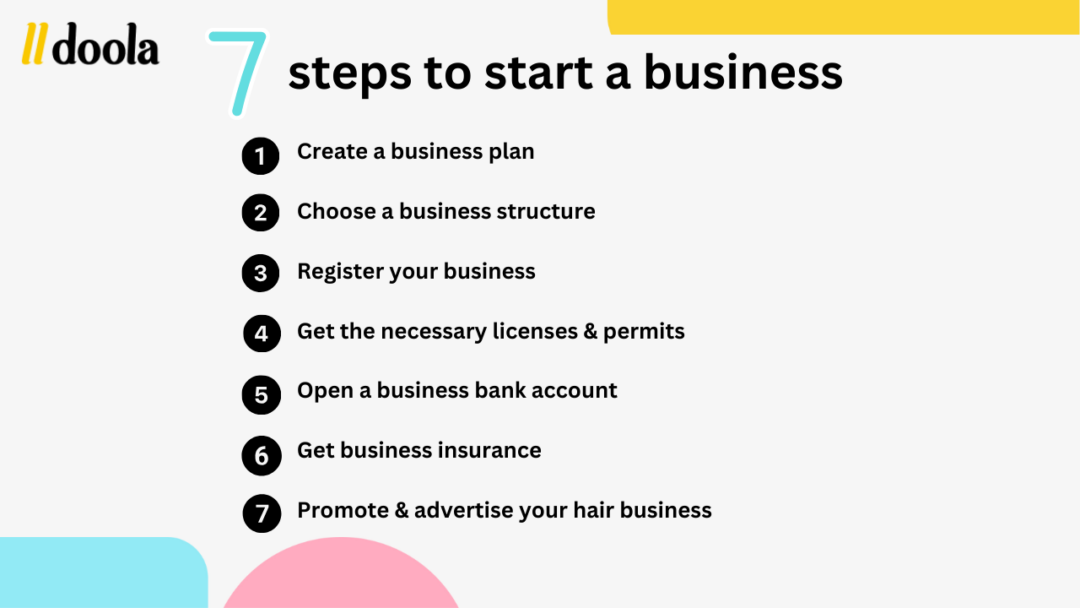
Looking to start a hair business but struggling to come up with a catchy name? This article provides a list of creative and memorable name ideas for your hair business. Whether you’re opening a hair salon, selling hair products, or specializing in hair extensions, there’s a name on this list that’s sure to grab your customers’ attention.
Get inspired and start building your hair brand today!
Importance of a Good Hair Business Name
Before we get into discussing the elements of a good hair business name, it’s crucial to understand why having a strong business name matters. A well-crafted business name is an essential part of your brand identity, as it serves as the initial point of contact between your business and potential customers.
It can create a lasting impression, differentiate you from competitors, and aid in marketing efforts. A good hair business name can also assist with search engine optimization (SEO) and establish a unique online presence.
Ultimately, a strong business name is vital for creating a memorable brand for attracting and retaining customers.
Tips for Choosing the Perfect Hair Business Name
Now that you know the importance of a good business name, let’s go over some tips on choosing one.
Be Creative
Don’t be afraid to think outside the box and come up with a unique and memorable name. Consider using puns, alliterations, or wordplay to make your name stand out.
Think About Your Audience
When choosing a name, consider your target audience and the type of hair services or products you offer. Your name should resonate with your potential customers and accurately reflect the nature of your business.
Keep It Relevant
Your business name should be relevant to the hair industry and accurately represent your business. Avoid using names that are too generic or have nothing to do with hair services or products.
Ask for Feedback From Family and Friends
It can be helpful to get an outside perspective on your potential name choices. They may be able to offer a fresh perspective or point out any potential issues or concerns with your name choices.
Check Domain Availability
Once you have a few potential names in mind, check the availability of the domain name and social media handles.
Make sure to do enough research to see if your chosen business name conflicts with other businesses and that it doesn’t interfere with the effectiveness of marketing.
Now let’s brainstorm some ideas.
25 Name Ideas for a Hair Business
Here are 25 name ideas for a hair business:
1. Crown & Mane
2. Tress Treasures
3. Strands & Co.
4. Mane Magic
5. Locks & Loaded
6. Hair Haven
7. The Hair Bar
8. Luxe Locks
9. Strand Society
10. The Mane Event
11. Hairitage
12. Glamour Tresses
13. The Strand Studio
14. Hair Therapy
15. Mane Attraction
16. Curltopia
17. Hair Affair
18. Mane Majesty
19. Stranded
20. Strand Out
21. Hairitage House
22. Mane Muse
23. Trimfades
24. Strand Savvy
25. Hair Horizons
Remember to choose a name that reflects your brand identity and appeals to your target audience. For more ideas on business names, take a look at this blog on how to name your business here.
How to Start Your Hair Business in 7 Steps
Once you have a name for your business, let’s go over how to start it from the ground up!
Step 1: Write a Business Plan
Crafting a comprehensive business plan is essential for any aspiring entrepreneur looking to launch a hair business. This plan enables you to articulate your business objectives and tactics, identify possible obstacles, and delineate the necessary steps for achieving success.
Key components of the plan include:
- Conducting market analysis
- Pinpointing your target market
- Setting a budget
- Devising a marketing strategy
- Detailing your business organization
A robust business plan can also assist in obtaining financial support from investors or loan providers. Overall, a meticulous and well-structured business plan can lay the groundwork for enduring success in your hair business.
Step 2: Decide on Your Business Structure
Next, you need to decide on a business structure. This is important because the type of structure you choose will determine your legal obligations and how you file your taxes.
Below are some of the most common types of business structures and their advantages/disadvantages.
Sole Proprietorship
A sole proprietorship is where an individual is the sole owner and operator of the business. This means that the individual is responsible for all aspects of the business, including profits, debts, and legal liabilities.
Advantages:
- Easy to Set Up: A sole proprietorship can be established quickly and easily, with minimal legal formalities and paperwork
- Complete Control: The owner has complete control over all business decisions and operations
- Tax Benefits: The business’s income is reported on the owner’s personal income tax return, which can result in lower tax rates and deductions
- Minimal Costs: There are few costs associated with setting up and maintaining a sole proprietorship
Disadvantages:
- Unlimited Liability: The owner is personally liable for all business debts and legal issues
- Limited Funding: It can be difficult to obtain funding or investment for a sole proprietorship, as it is viewed as a high-risk venture
- Limited Growth Potential: A sole proprietorship can be limited in terms of growth and scalability, as it is difficult to expand without significant investment or partnership
- Limited Expertise: The owner may lack expertise in certain areas, such as finance or marketing, which can hinder the success of the business
A sole proprietorship can be a good option for individuals looking to start a small business with minimal costs and legal formalities.
General Partnership
A general partnership is run by two or more individuals who share ownership of the business and are jointly responsible for all aspects of the business. This includes profits, debts, and legal liabilities.
Advantages:
- Easy to Set Up: A general partnership can be established easily and with minimal legal formalities and paperwork
- Shared Decision-Making: All partners have an equal say in business decisions and operations
- Tax Benefits: A general partnership is considered a pass-through entity, meaning that the business’s income is reported on each partner’s personal income tax return, which can result in lower tax rates and deductions
- Diverse Skills and Resources: With multiple partners, a general partnership can benefit from a diverse range of skills, resources, and expertise
Disadvantages:
- Unlimited Liability: Each partner is personally liable for all business debts and legal issues, as well as any actions taken by the other partners
- Shared Profits: All profits must be shared equally among the partners, regardless of the amount of work or investment each partner contributes
- Conflict: With multiple partners, there is a higher risk of disagreement or conflict over business decisions, which can lead to legal disputes and potentially harm the business
- Limited Growth Potential: A general partnership can be limited in terms of growth and scalability, as it is difficult to expand without significant investment or restructuring
A general partnership can be a good solution for individuals who want to create a business with shared ownership and resources.
Limited Partnership
A limited partnership is a form of business in which two or more people share ownership of a business, including two types of partners: general partners and limited partners.
General partners manage the business and have unlimited personal liability for business debts and obligations.
Limited partners, on the other hand, do not participate in managing the business and have limited liability for business debts and obligations.
Advantages:
- Limited Liability: Limited partners are only liable for business debts and obligations up to the amount of their investment, whereas general partners have unlimited personal liability
- Diverse Skills and Resources: With multiple partners, a limited partnership can benefit from a diverse range of skills, resources, and expertise
- Tax Benefits: A limited partnership is considered a pass-through entity, meaning that the business’s income is reported on each partner’s personal income tax return, which can result in lower tax rates and deductions
- Investment Opportunities: Limited partnerships can raise additional capital by bringing in new limited partners, without the need for restructuring the business
Disadvantages:
- Limited Control: Limited partners have limited control over the business and do not participate in managing the business
- Unlimited Liability for General Partners: General partners have unlimited personal liability for business debts and obligations, which can put their personal assets at risk
- Potential for Conflict: With multiple partners, there is a higher risk of disagreement or conflict over business decisions, which can lead to legal disputes and potentially harm the business
- Complex Legal Formalities: A limited partnership requires more legal formalities and paperwork than a sole proprietorship or general partnership
A Limited partnership can be a good option for individuals who want to create a business with shared ownership and resources while limiting their personal liability.
Limited Liability Company
A Limited Liability Company (LLC) offers the limited liability protection of a corporation and the tax benefits of a partnership. LLC owners are referred to as members, and there is no limit to the number of members an LLC can have.
Advantages:
- Limited Liability Protection: LLC owners have limited liability for business debts and legal issues, which means their personal assets are protected
- Tax Benefits: LLCs are considered a pass-through entity, meaning that the business’s income is reported on each member’s personal income tax return, which can result in lower tax rates and deductions
- Flexibility: LLCs have fewer legal formalities and paperwork than corporations, and members have flexibility in structuring the ownership and management of the business
- Credibility: An LLC can lend credibility to a business and make it more attractive to investors or lenders
Disadvantages:
- Cost: LLCs are typically more expensive to establish and maintain than a sole proprietorship or general partnership
- State-Specific Rules: LLCs are subject to state-specific rules and regulations, which can vary depending on the state in which the business is located
- Limited Growth Potential: LLCs can be limited in terms of growth and scalability, as it can be difficult to raise capital through the sale of ownership shares
- Self-Employment Taxes: Members of an LLC are considered self-employed and must pay self-employment taxes on their share of the business’s income
Overall, an LLC is a good choice for individuals looking for the limited liability protection of a corporation and the tax benefits of a partnership, while maintaining flexibility in the management and ownership of the business.
Corporation
A corporation is a type of business entity that is legally recognized as a separate entity from its owners. The corporation is owned by shareholders, and its affairs are managed by a board of directors.
Advantages:
- Limited Liability Protection: Shareholders have limited liability for business debts and legal issues, which means their personal assets are protected
- Ability to Raise Capital: Corporations can raise capital through the sale of ownership shares, which can be an attractive option for investors
- Credibility: A corporation can lend credibility to a business and make it more attractive to investors or lenders
- Transferability of Ownership: Ownership shares in a corporation can be easily transferred or sold, which can make it easier to raise capital or exit the business
Disadvantages:
- Cost: Corporations are typically more expensive to establish and maintain than other types of business structures
- Complex Legal Formalities: Corporations have more legal formalities and paperwork than other business entities and are subject to federal and state regulations
- Double Taxation: Corporations are subject to double taxation, meaning that both the corporation’s income and shareholders’ dividends are taxed
- Limited Control: Shareholders have limited control over the day-to-day operations of the business, and decisions are made by a board of directors
A corporation can be good for individuals looking to raise significant capital and protect their personal assets from business debts and legal issues.
However, the cost, complex legal formalities, and double taxation should also be considered before choosing this business entity type.
Step 3: Register Your Business
After you choose your business structure, next, you need to register your business. Registering a business involves the legal process of officially establishing a business entity with the government.
The specific process and requirements vary depending on the state and type of business entity. Generally, registering a business involves selecting a business name (which you completed in the beginning), filing an Articles of Organization, obtaining necessary licenses and permits, and registering for taxes.
This can be done through the state’s Secretary of State office or other government agencies such as a Business Bureau. It’s important to ensure that all legal requirements are met to avoid potential legal issues or penalties down the line.
Step 4: Obtain Licenses and Permits
Obtaining licenses and permits is a necessary step in starting and running a business. The process can vary based on the type of business and location.
Here are the steps to follow:
- Research the required licenses and permits for your business based on location and industry
- Complete the required applications and submit the appropriate documentation
- Submit the completed applications and all required fees to the appropriate agencies or departments
- Wait for approval, which may take several weeks or months
- Renew licenses and permits as necessary to remain in compliance
It’s important to ensure that all necessary licenses and permits are obtained to avoid potential legal issues or penalties down the line.
Step 5: Open a Business Bank Account
You may be wondering what the significance is in opening a business bank account.Opening a business bank account helps to keep personal and business finances separate, simplifies tax reporting, and can improve the credibility of the business.
You will usually need to provide documents such as the Articles of Organization, business licenses, and an ID for the signer of the account. In addition, a business owner should research different banks to find the best option for their business needs and compare fees, services, and features.
If you’re an international founder and need help with opening a US business bank account, grab a free consultation and we’ll answer any questions you might have.
Step 6: Avail of Business Insurance
In addition to opening a business bank account, every business owner should look into acquiring business insurance. It’s an important step to protect a business from unexpected events and potential liabilities.
Some common types of insurance for businesses include:
- General liability insurance
- Property insurance
- Workers’ compensation insurance
- Professional liability insurance
- Product liability insurance
- Business interruption insurance
Make sure you research the different types of insurance available and select the ones that best fit your business needs to ensure you are properly protected.
Step 7: Promote and Advertise Your Hair Business
Your last step in starting your hair business is promoting and advertising your services to help attract new customers and grow the business. Here are some effective ways to promote and advertise a hair business:
1. Create and Optimize a Website: A website can showcase the business’s services and portfolio, and help customers find and contact the business
2. Do SEO or PPC Advertising: Search engine optimization (SEO) and pay-per-click (PPC) advertising can drive more traffic to the website and increase visibility in search results
3. Create Social Media Accounts: Social media platforms like Facebook, Instagram, and Twitter can help reach a wider audience and engage with customers
4. Attend Events: Attending events like hair shows can offer opportunities to network and meet other people in the hair industry
5. Join Professional Organizations: Joining professional organizations in the hair industry, like the Professional Beauty Association (PBA), can provide opportunities to connect with other professionals, gain industry insights, and promote the business
6. Offer Promotions and Discounts: Offering promotions or discounts can attract new customers and encourage repeat business
7. Ask for Customer Referrals: Satisfied customers can be a valuable source of referrals and can help spread the word about the business
Promoting and advertising a hair business requires a combination of online and offline strategies. With a well-designed website, active social media presence, and participation in industry events can help build your network and a loyal customer base.
Unleash the Potential of Your Hair Business
In summary, starting and running a hair business requires careful planning and execution, from choosing the right business entity to obtaining the necessary licenses and permits to advertising the business.
Another important aspect of running a business is bookkeeping and accounting, which can help organize the business’s finances and ensure tax compliance.
So if you’re the type of person who dreads tax time, consider hiring a professional here at doola. Our bookkeeping services can help you manage your finances efficiently and effectively by providing accurate and timely accounting services.
Contact doola today to book a free consultation with one of our professionals.
FAQs
How do I choose a hair brand name?
Be creative when choosing a hair brand name, think about your target audience, keep it relevant, ask your family and friends for advice, and check domain availability. Brainstorm and compile a list of possible names, then narrow them down based on the criteria above.
How do I attract customers to my hair business?
To attract customers to a hair business, it’s important to have a strong marketing campaign that will ensure your business gets enough exposure to attract potential clients.
How do I create a hair business page on Facebook?
To create a hair business page on Facebook, log in to Facebook and click on “Create” in the top-right corner. Choose “Page” and then select “Business or Brand.” Follow the prompts to set up your page and customize it with your business information, logo, and images.







